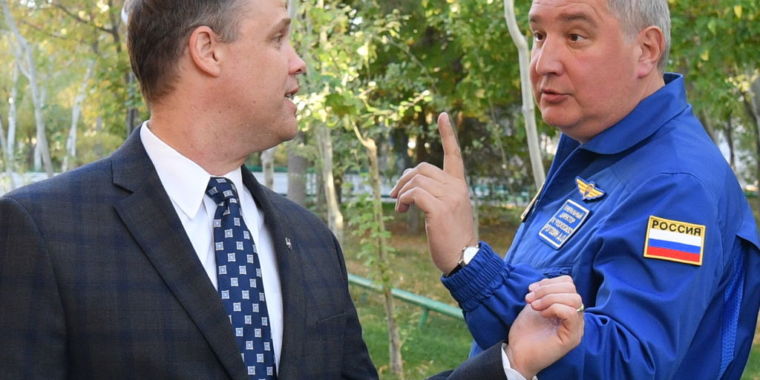

On Monday, the US Department of Commerce released a list of Chinese and Russian companies it says have military ties. The list designates 58 Chinese and 43 Russian companies as “military end-users” and requires exporters to obtain a license before selling their products. Such licenses are unlikely to be issued.
“The department recognizes the importance of leveraging its partnerships with U.S. and global companies to combat China and Russia’s efforts to divert U.S. technology to their destabilizing military programs,” Commerce Secretary Wilbur Ross said in the announcement.
The list includes several space companies from China and Russia, including the Progress Rocket Space Center in Samara, Russia. This company develops and manufactures Soyuz rockets that have transported Russian and American astronauts to the International Space Station in the last decade after the withdrawal of the American space shuttle.
The inclusion of the Soyuz manufacturer on Tuesday drew a quick rebuke from Dmitry Rogozin, the leader of the Russian space corporation, Roscosmos. In his scathing statement, Rogozin said the restrictions were “illegal” and called them “stupid.”
“This Samara company has been manufacturing legendary Soyuz-2 launch vehicles, with which the Soyuz MS spacecraft has been taking American astronauts to the ISS for 10 years already,” he said. “Now, it seems that our American colleagues have the” functional trampoline “again and the first thing they did is spit in the Samara well. It is not too early, colleagues, where your “trampoline”. it breaks again suddenly and you will have to satisfy your passion for space in our fountain again? “
Six years later
Rogozin’s comment on a trampoline dates back six years, until he was personally targeted by US government sanctions following the Russian invasion of Crimea. At the time, when NASA was fully headed for Russia to take astronauts to the International Space Station, Rogozin said“After analyzing the sanctions against our space industry, I suggest that the US deliver its astronauts to the ISS with a trampoline.”
In the end, this proved embarrassing for Rogozin. In May, after the SpaceX Crew Dragon and Falcon 9 rockets launched humans into orbit in the United States for the first time since 2011, company founder Elon Musk said, “The trampoline works.” Since then, SpaceX has safely launched a second crew to the space station and has two more missions set for 2021. Roscosmos has not yet committed to piloting a cosmonaut on the US vehicle.
With his latest comments, Rogozin suggests that SpaceX vehicles could have another problem. Perhaps not surprisingly, as Ars recently reported, Rogozin seems obsessed with the success of SpaceX and how it has affected the economic prospects of his own corporation.
None of this seems to help the ongoing cooperation between NASA and Roscosmos to operate the space station. Rogozin acknowledges the same, saying: “These sanctions are harmful because they will create additional obstacles and irritations in such important cooperation between Russians and Americans in space and especially on the ISS.”
Six years ago, Rogozin’s words finally turned out to be little more than a bluster. It remains to be seen whether today’s statement and the consequences of these economic constraints lead to a more permanent issue for the international partnership that has successfully run the space station for more than two decades now.